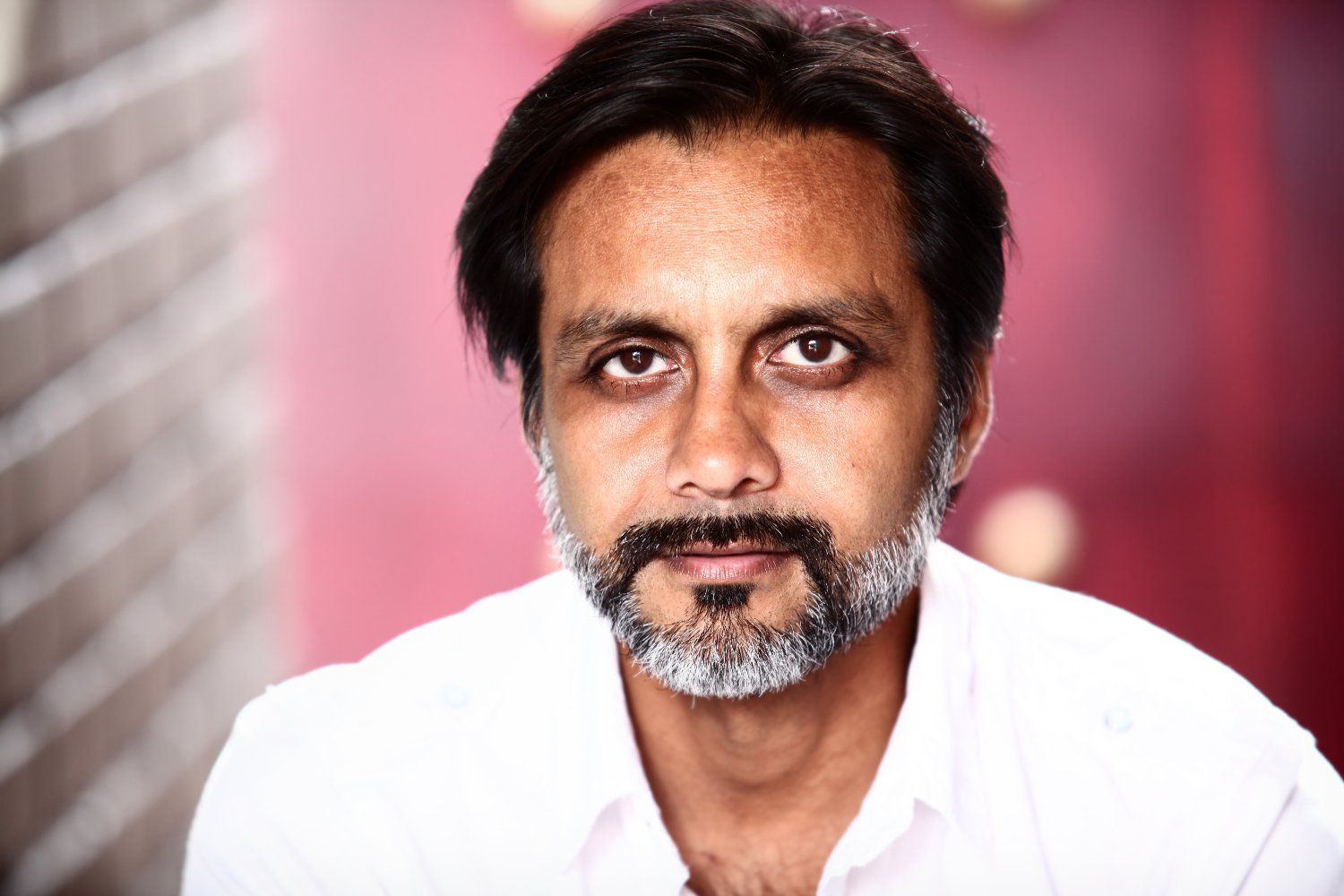
In Their Own Words: Actor/Writer/Producer Anjul Nigam of “Growing Up Smith”
Greetings readers! It has been a spell since I’ve had the opportunity to visit the entertaining, informative, and insightful arena of “In Their Own Words” via the honor of connecting with and posting the thoughts of over 50 independent film industry artists to date in the course of my journeys and experiences with OneFilmFan.com. Therefore, it is with a gracious amount of gratitude that I bring to you the newest edition of this category thanks to a truly talented and driven artist, whose passion for his work is only equaled by his sincere, down-to-earth temperament and aim to showcase not only his fortitude as an independent actor, but as a writer and producer as well.
Having tackled both television (“Lie To Me”, “True Detective”, “Grey’s Anatomy”) and film (“Terminator Salvation”, “Answers To Nothing”, “Bad Words”) roles, all while busy creating multiple “in-the-works” projects to produce and potentially act in, this amazing individual presents himself as the 25-year industry veteran that he is, but does so with a quietly intense and focused earnestness that very much captivates you. His most recent project is the fantastically well-done indie effort “Growing Up Smith”, and you’re about to learn about this family-friendly film as well as what else makes the man named Anjul Nigam tick as a person and filmmaker. Let’s take a ride and see what Anjul had to say to OneFilmFan.com!
One Film Fan: As always, I want to first extend a sincere “Thank You!!” to you, Anjul, for your taking the time to do this interview! So, born in Kanpur, but a short-lived time in India. Tell a little about yourself in broad strokes to familiarize us with who exactly Anjul Nigam is.
Anjul Nigam: I was born in Kanpur, U.P. India, delivered in our home by my grandmother who was a doctor. The first two years of my life were spent in Mumbai, where my father was a math professor at IIT-Bombay. We immigrated to the States in 1967 when my father was invited to do a sabbatical at Quinnipiac University in Connecticut. What was meant to be a six-month stay became a permanent offer and we ended staying in the States. I grew up in a small suburban town called Cheshire in the state of Connecticut, went to New York University (Tisch School of the Arts) where I received a BFA in Drama. I moved out to Los Angeles in 1989 with the intention of getting out — I thought I’d move to Hollywood, get established as an actor and return to my roots in NY. As it were, I never did move back and am now married with two kids (both boys) living in “The Valley” region of LA.
O.F.F.: What were the initial catalysts that lead you into acting?
A.N.: I was inspired to become an actor by watching “The Ten Commandments” when I was eight. Charlton Heston in the role of Moses was my childhood hero. I was so moved by the performance, that after seeing the movie, I found a stick in my backyard and called it my staff. As my friends would play cops and robbers, I was busy opening the Red Sea which was my lawn in Connecticut.
O.F.F.: How did you further learn the art (ie: mentors, influences, and schooling)?
A.N.: The year I turned sixteen and got my driver’s license, I auditioned for a summer residence program for the arts at Wesleyan University to prove I was serious about becoming an actor. Meanwhile, my parents had agreed to let me use their car in exchange for paying my own insurance, and I knew my true independence would come by holding down a summer job. With that, I set out to find one by applying all over town. As luck would have it, my undeniable talent had earned me not one, not two, but three job offers: stock-boy at Marshall’s, bagger at the local grocery chain Stop ‘N’ Shop, or ice cream scooper at Dairy Queen.
But, a thick envelope that arrived that May from Wesleyan University was going to throw me for a loop: “We are pleased to announce you have been accepted with full scholarship to Wesleyan University’s Centre for Creative Youth in the discipline of Acting.” I had a decision to make–to prove how serious I was about becoming an actor, or to gain my independence. At sixteen, independence had the upper hand. But, my parents put me to task: “If you’re serious about becoming an actor, go to Wesleyan and find out how much you truly like it.” “But what about these jobs?” I argued. “There will be plenty of time to get a job later.” So, I packed my bags and off I went to study the craft of acting. My parents had no idea what they’d done!
Wesleyan University’s Centre for Creative Youth was a pivotal point in my life, as I went from saying “I want to be an actor” to actually doing it. Ted Guhl, the acting program’s director, was a tremendous influence. From him I learned the basics: Stanislavski, objectives, sense memory, scene breakdown, and above all, commitment. Commitment meant not only in a scene, but also to the craft. He made us disciplined about the art, about showing up on time, about doing our homework, and about staying focused on the work.
O.F.F.: What was your first major acting role, and how did that experience influence your decision to remain in the industry?
A.N.: I’ve been blessed that my professional path has been a slow build to a body of work, layered with some very significant roles, and working with some very terrific talent. But a role that sticks out is one which allowed me to become a professional actor by earning the highly coveted SAG card–a proud member of the Screen Actor’s Guild! The joy of getting my first paid gig as an actor was immeasurable. The job was doing a training film for the U.S. Army titled “Hostage and Terrorist Crisis Management”. I played a young, naïve Middle-Eastern terrorist who is bullied into taking over a military base camp. I was on my way! The rest, as they say, is history!
O.F.F.: You’ve had stints in both film and TV. How do those gigs compare to each other? Do you prefer one over the other?
A.N.: I enjoy them both (pat answer! 🙂 ) Film is generally a slower process, where in non-studio projects ie: independent films, an entire shoot may be as little as 20 days while in a studio film upwards of 60. In T.V., a one-hour episode is completed in 8-10 days, a half-hour show in 5.
O.F.F.: Now, you also write and produce as well. Share a little on how those aspects of your career manifested, even as you remain acting as well. A lot to juggle I would think!
A.N.: Writing and producing became a part of my professional path due to “Growing Up Smith” when I was sent the original version of the script by its original writer who wanted to attach me in the role of the father. As it was in its embryonic stage, I optioned the script to produce it, spent some time rewriting it, brought on board a director with whom I did a page-one rewrite, and then set out on a 10-year journey to get the movie financed. In the process, I learned about producing by overcoming one obstacle after another. And yes, wearing three “hats” is a lot to juggle, but ultimately it’s about time management. As a producer, there were always fires to put out; as a writer, there were always last minute rewrites often based on those same fires (e.g. we lost a location and a scene had to incorporate a new setting); and as an actor, even though acting had been my primary profession for nearly 25 years, I was often wrestling with keeping my headspace focused solely on the scene we were shooting while so many fires were ablaze around me.
O.F.F.: Let’s move onto your current project, “Growing Up Smith”, currently enjoying an expanded run in select theaters across the U.S.. What factors drew you to this film?
A.N.: I first learned of the project in its infancy when Gregory Scott Houghton, who had written the original script, reached out to attach me as an actor. I came on board to play to the role of the father, “Bhaaskar”. As someone who grew up in 1970’s suburban America, I identified with the core of the story: the idea of an immigrant family trying to achieve the American Dream while still holding onto the values of the homeland. I optioned the rights to Greg’s script, spent some time rewriting it, infusing elements of my own immigrant experience. I then brought on board Paul Quinn, who was a child of Irish immigrants, and who grew up in suburban Chicago. He and I spent a year doing another rewrite, and the resulting script is what was eventually made. (also, please see the answer to Question 6 above)
O.F.F.: Tell us about the character, Bhaaskar, you play in it.
A.N.: My character Bhaaskar (Smith’s father) is greatly based on my own father. Like so many immigrant parents, mine raised us with the need to preserve the traditions of our homeland while still dealing with the duality of allowing us to assimilate so that we would face as few obstacles as possible. Meanwhile, my father’s goal was never to be here permanently, but rather to become professionally established and then return to the homeland. In fact, Bhaaskar’s line “Be patient, Mummi. When we go back, we will live like rajas and ranis. We will live the American Dream–in India” is borrowed directly from my own father. That’s the common thread about the immigrant experience–essentially, we are trying to find a home away from home.
O.F.F.: Along those same lines, the film puts forth a strong portrayal of the challenges faced by an immigrant family trying to meld into American society, culture shock and all, while trying to also show them hanging on to traditional Indian values/ customs. Does this bear relevancy to your own personal experiences?
A.N.: Absolutely. My two older brothers and I were four, three, and two years old when we immigrated to America. My parents held onto the traditions of their homeland so much so that our household in Connecticut was a capsule frozen in the 1967 India we left behind. In face, when we’d go back to visit, we’d find that our own cousins growing up in India were more Westernized than us!
O.F.F.: There’s also the “heavier” themes like bullying, intolerance, non-understanding of other cultures, etc within such an overall whimsical narrative. How was it to integrate these and other themes without making it impact that lighthearted approach?
A.N.: For me, finding humor in the difficult moments of life is what helps in keeping things positive and lighthearted.
O.F.F.: Taking on acting, plus being a writer and a producer on the project, how was it to handle all of that responsibility? A serious labor of commitment and drive!
A.N.: See the answer to Question 6 above. 🙂
O.F.F.: What was it like to work with Jason Lee, Hilarie Burton, Brighton Sharbino, Poorna Jagannathan, Shoba Narayan, Roni Akurati, and Samrat Chakrabarti?
A.N.: They were ALL lovely to work with! I was directly involved with the entire casting process, and was thrilled to bring this very talented group of actors together as an ensemble.
O.F.F.: How about director Frank Lotito?
A.N.: Frank and I met back in 1995 on “Silver Strand”, a Showtime film in which I was one of the leads and that we shot in Melbourne, Australia. Frank was a local Australian actor and we became friends over the two months that I was there. Then, about 16 years later, we reconnected via Facebook. One thing lead to another, and soon thereafter, Frank came on board to produce “Growing Up Smith.” When Paul, who had co-written the script and was attached to direct, became ill while we were in pre-production, Frank stepped up to the plate to helm the film. It was his directorial debut, and he had less than two weeks to prepare! I believe he did a fantastic job!
O.F.F.: What other projects are on the horizon for you currently?
A.N.: I have several feature films in development, all of which I’m producing, a few of which I’ve written, and if the directors let me, maybe I’ll be in a few as an actor, too!
O.F.F.: Independent cinema is honestly one of the most underrated genres of film in general. The wealth of talent, creativity, and originality topped off with engaging character and narrative-centric execution. How important is it that indie cinema, no matter where its being made, is given a larger platform to shine and find support? Have you found independent productions more fulfilling in your experiences to date as someone involved in such a multi-faceted way?
A.N.: Independent cinema is different in that the financing is coming from a different source than distribution. In other words, the financier is taking a risk to a certain extent by investing in a project that doesn’t have a guaranteed distribution avenue. Then, the filmmakers are taking a risk by working for a greatly reduced fee (if not for free) hopefully to create something they truly believe in. I’m not a big fan of making art that then you need to ask all your friends for “support.” My perspective is make content of quality, then put it out there with the proper marketing, publicity, and grass roots outreach in order to get people genuinely interested versus begging for “support.”
I believe the economics of supply and demand are something an independent filmmaker needs to be mindful of from the start. Making movies that don’t have an audience will put you in the unenviable position where the key marketing strategy is a reliance on the favor of friends to “support” you. It’s also important to think backwards, that is, develop your film toward what tools you will be able to offer your eventual distributor in getting the movie out in an immensely competitive marketplace. Is it a recognizable name that fits the part and genre? It is high quality craftsmanship? Does the story have an appeal to a certain audience?
O.F.F.: Ok, have to end it all off with a classic question that people seem to love or hate! What is YOUR favorite film of all time? Why?
A.N.: “Stand By Me” is my all-time favorite film. It’s a warm-hearted, nostalgic, feel-good, endearing tribute to growing up and coming-of-age in a small town. The last line of the film really hits the emotional mark so well: “I never had any friends later on like the ones I had when I was 12. Jesus, does anyone?” When we think of the times from our childhood, we remember that while we’re experiencing them, they seemed to be so complicated. But in hindsight, we realize how innocent and pure they truly were. When you look back on that period in life, you can hear the laughter of children playing kick-the-can, and you know life will never be that simple again for us as adults. But, we smile, thinking of those good ol’ days with fondness.
How much more genuine can you ask for? What constantly amazes me as I continue to meet and connect with independent filmmakers, actors, writers, producers, publicists, et al is the sheer level of fervency, enthusiasm, and eagerness these individuals possess to do everything in their power to illustrate how gutsy decisions, risky endeavors, and pure love of their art can propel them to create these incredibly executed films on top of fighting tooth and nail to find the avenues of distribution and get their product to the world at large. Anjul Nigam is without question, and in a multitude of ways, one of those purposeful, intentional artists looking to have an impact for the better, not just within the filmmaking community, but also the world at large. He is a force to watch out for, as even after all the years already spent crafting the career he’s desired, this reviewer cannot help but get the feeling he’s just getting started!
Want to keep up on Anjul Nigam and what’s what in his ever-intriguing sphere as well as “Growing Up Smith”? Check out the following ways to do so:
“Follow” Anjul on Twitter HERE
“Follow” Anjul on Facebook HERE
Check out Anjul’s Website HERE
“Follow” “Growing Up Smith” on Twitter HERE
“Like” “Growing Up Smith” on Facebook HERE
Once again, I would like to extend a heartfelt “Thank you!!” to Anjul Nigam for his willingness to take time out of a very, very busy schedule in order to do this interview! He is a person I am proud to count as a friend, so grateful for his support of me and the work I am striving to do at OneFilmFan.com, and we can all only hope to have the privilege of getting to witness what’s next to come from this remarkable creator.
As always, this is all for your consideration and comment. Until next time, thank you for reading!
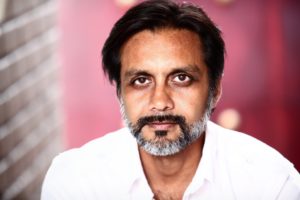
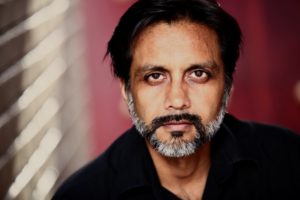
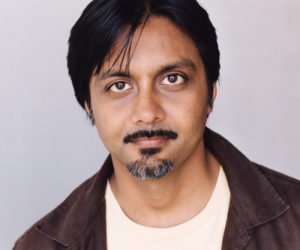
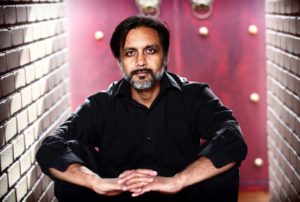
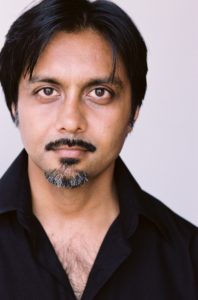
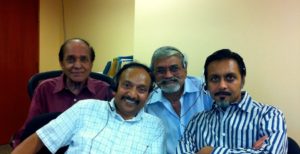
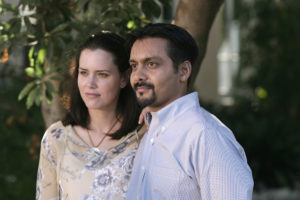
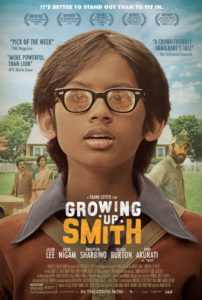
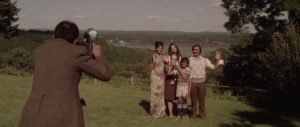

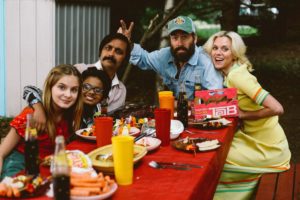
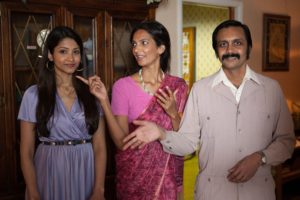
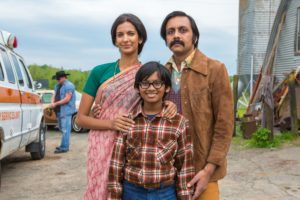
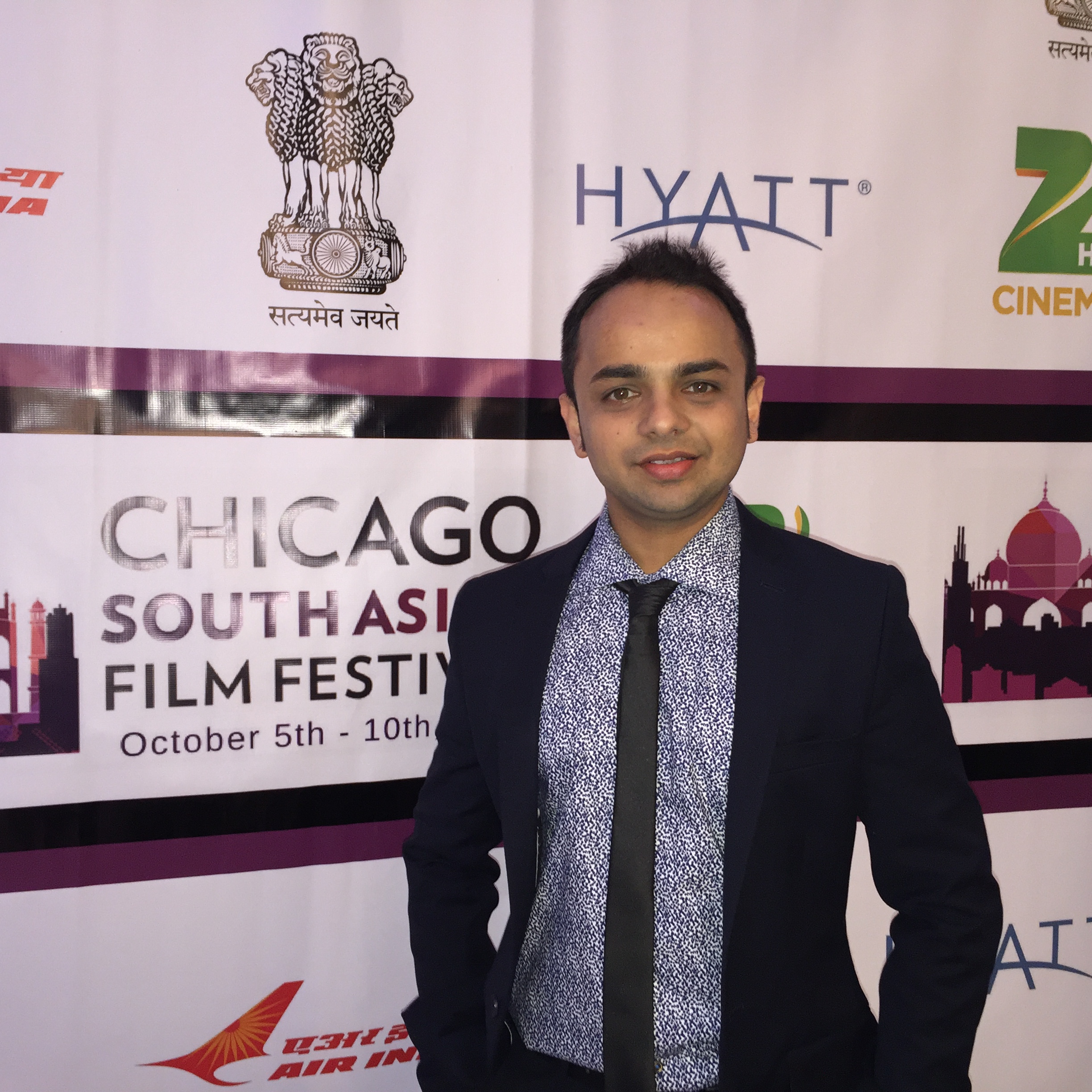
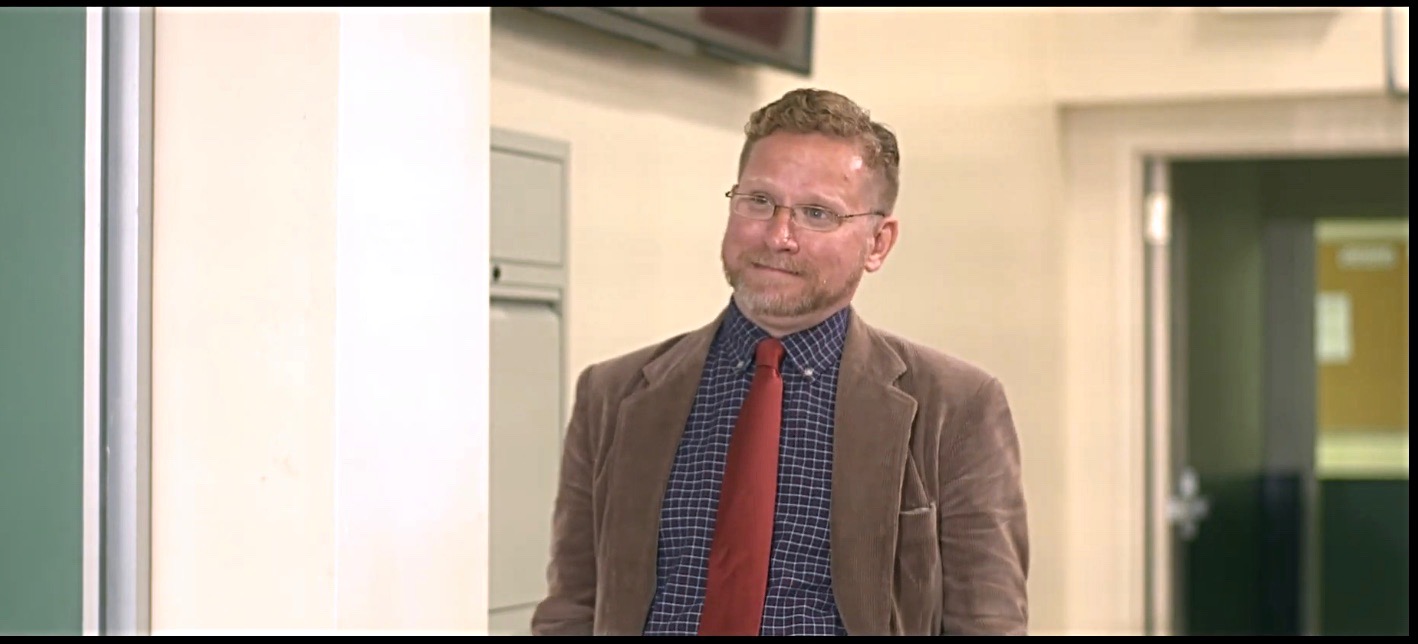
Wow Anjul!!! Pretty awesome backround and interview. I so wish you could’ve met my son. There are so many things you have done that inspire people and in the arts you are reaching the masses! Congratulations on all of your accomplishments and keep it up! ❤️